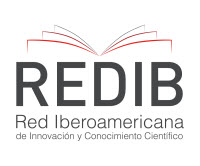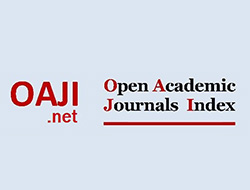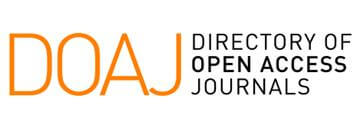Reflections on the teaching-learning of PLE (Portuguese as a Foreign Language) by Hispanophone learners seeking to enter the job market in Portuguese-speaking countries
Keywords:
Portuguese language, PLE, EconomyAbstract
This article presents reflections on approaches linked to the teaching of the Portuguese Language (LP) as Portuguese as a Foreign Language (PLE) for the labor market and its striking relationship with the demand for study; the language is currently the 6th most spoken in the world. For this essay we have, among others, theoretical models related to the works of Bortoni-Ricardo (2005) about the theme of Portuguese socio-history, the thought of Alonso Rey (2012) about the transference in the learning of Portuguese by Spanish speakers, the dimensions of variation in LP by Llari and Basso (2006), and Chen’s (2012b) thinking about the economic behavior of languages.
Downloads
References
BORTONI-RICARDO, S. M. Nós cheguemu na escola, e agora? Sociolinguística & educação. São Paulo: Parábola, 2005.
CHEN, K. A sua língua pode afetar a sua habilidade de economizar? Tradução Gislene Arantes. TED Talks, 2012a. Disponível em: https://www.ted.com/talks/keith_chen_could_your_language_affect_your_ability_to_save_money/transcript?language=pt-br: Acesso em: 21 jul. 2020.
CHEN, K. The effect of language on economic behaviour: evidence from savings rates, health behaviors and retirement assets. Cowles Foundation Discussion Paper, n. 1820, dez. 2012b. Disponível em: http://ssrn.com/abstract=1914379. Acesso em: 22 jul. 2020.
CHOZAS, D.; DORNELES, F. Dificultades del español para brasileños. Madrid: Ediciones SM, 2003.
COMISSÃO DAS COMUNIDADES EUROPEIAS. Comunicação da Comissão ao Conselho, ao Parlamento Europeu, ao Comité Económico e Social Europeu e ao Comité das Regiões. Bruxelas: CCE, 2009. Disponível em: http//eur-lex.europa.eu/LexUriServ/ LexUriServ.do?uri=COM:2009:0640:FIN:PT:PDF. Acesso em: 22 ago. 2020.
JORDÁN, J. A. La escuela multicultural: un reto para el profesorado. Barcelona: Paidós, 1994.
LLARI, R.; BASSO, R. O português da gente: a língua que estudamos, a língua que falamos. São Paulo: Contexto, 2006.
LYRA, D. M.; RIBEIRO, R. F. da C. A crise econômica atual e o mundo do trabalho. Revista Economia & Desenvolvimento, Recife, v. 8, n. 2, p. 296-332, 2009. Disponível em: http://periodicos.ufpb.br/ojs/index.php/economia/article/view/4874. Acesso em: 8 set. 2020.
MATEUS, M. H. M. O estudo da fonética e da fonologia no ensino da língua. In: RAMOS, C. de M. de A. et al. Pelos caminhos da dialetologia e da sociolinguística: entrelaçando saberes e vidas – homenagem à Socorro Aragão. São Luís: Edufma, 2010. p. 51.
REY, R. A. La transferencia en el aprendizaje de portugués por hispanohablantes. Salamanca: Luso-Española de Ediciones, 2012.
RODRIGO, B. Más de 40.000 españoles estudian portugués. ABC.es, Lisboa, 8 jan. 2008. Disponível em: https://www.abc.es/familia/educacion/abci-mas-espanoles-estudian-portugues-ultimos-cinco-anos-aumentado-200801080300-1641543329213_noticia.html. Acesso em: 8 set. 2020.
UNIVERSIDADE DE COIMBRA. O Quadro Europeu Comum de Referência para as Línguas. Coimbra: Centro de Línguas da Faculdade de Letras, [2008]. Disponível em: http://www.uc.pt/fluc/cl/diplomas/qecr. Acesso em: 8 set. 2020.
Downloads
Published
How to Cite
Issue
Section
License
The copyright of the articles published in Cadernos de Pós-Graduação em Letras belongs to the authors, who grant the Mackenzie Presbyterian University the exclusive rights to publish the content. Total or partial reproduction is prohibited without due authorization from the Editorial Committee, except for study and research.










